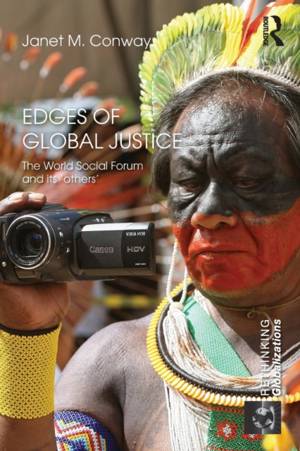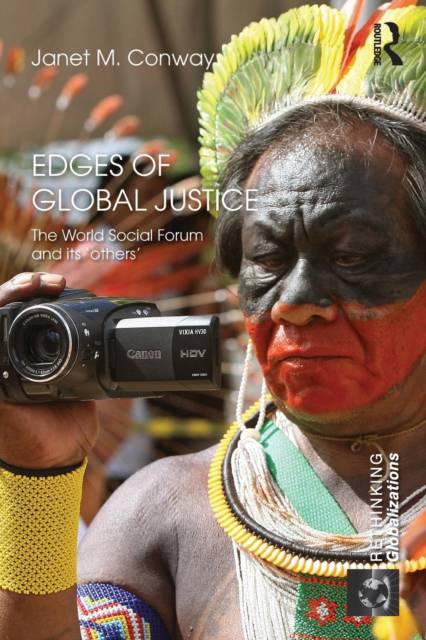
- Afhalen na 1 uur in een winkel met voorraad
- Gratis thuislevering in België
- Ruim aanbod met 7 miljoen producten
- Afhalen na 1 uur in een winkel met voorraad
- Gratis thuislevering in België
- Ruim aanbod met 7 miljoen producten
Omschrijving
This book analyzes the World Social Forum (WSF) in a context of crisis and transition in the history of Western capitalist modernity. Based on ten years of fieldwork on three continents, this book treats social movements as knowledge producers. It pays attention to what movements are doing and saying on the terrain of the WSF over time and from place to place, and to how they theorize its significance.
Framed by the Latin American modernity-coloniality perspective, the book critically engages with discourses of global civil society, autonomism, and transnational feminism toward a reading of the WSF through the lens of 'colonial difference'. Each chapter outlines a set of contestations and contributions with relevance beyond debates about the WSF. It will be of strong interest to students and scholars of social movement studies; international politics; post-colonial studies; gender studies; sociology; political theory and social work.
Specificaties
Betrokkenen
- Auteur(s):
- Uitgeverij:
Inhoud
- Aantal bladzijden:
- 224
- Taal:
- Engels
- Reeks:
Eigenschappen
- Productcode (EAN):
- 9780415530798
- Verschijningsdatum:
- 26/02/2013
- Uitvoering:
- Paperback
- Formaat:
- Trade paperback (VS)
- Afmetingen:
- 156 mm x 234 mm
- Gewicht:
- 317 g

Alleen bij Standaard Boekhandel
Beoordelingen
We publiceren alleen reviews die voldoen aan de voorwaarden voor reviews. Bekijk onze voorwaarden voor reviews.












